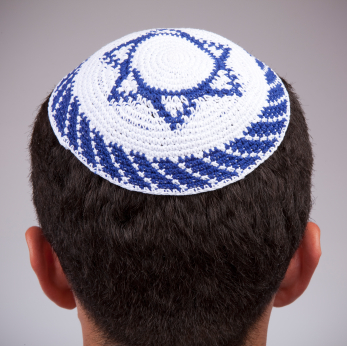About once a year, I pick up the paper and read about a Jewish athlete who has been told he couldn’t play a game wearing a yarmulke, or a Muslim athlete who couldn’t wear a hijab head scarf or a hajab-compliant uniform covering her legs.
Usually, the official who made the call is vilified in the local press, which then finds a sports governing body representative, who points out that the official got it absolutely right. This leads the local press to accuse the sport's governing body of being heartless bureaucrats who let rules get in the way of good old-fashioned common sense.

There are two groups that can save us from this recurring rules problem: the officials who didn’t make the call, and the coaches who didn't know the rules.
Enough blame to go around
The officials who didn't make the call allowed the athlete to play in violation of the rules. When an official eventually does their job and makes the call, they end up shouldering all the blame, when it's really all the officials who didn't make the call in earlier contests who are really at fault. If they enforced the rule in the first week of an athlete's season, the issue would have been addressed, so that by the time the athlete was playing in a big game later in the season, the matter would already have been resolved.
Invariably, the incidents that get the biggest media coverage occurs in youth or high school events that are big enough to generate coverage in the first place: crucial late-season games or post-season playoff contests, which are generally officiated much more by the book. In track and field (which had a Muslim legging controversy a few years ago), early season dual meets may be officiated very informally, sometimes not even by certified officials. In the big spectator sports such as basketball, officials may cut athletes some slack in early season games.
The problem, of course, is that all the early season officials who are nice, or cut players slack, aren't doing themselves, the athletes or officials later in the season any favor; they are just setting them all up for a fall. It is these early season officials who are at fault. If they either enforced the rule or let the kid play while reporting the violation to the appropriate governing body, a solution could be worked out before a public relations disaster occurs.
Coaches aren't blameless either. They all have access to a rulebook, and they all have a duty to read it. If you’re a basketball coach, it shoud come as no surprise that head wraps are ordinarily prohibited, but that one can obtain a religious exemption letter from a state athletic association for items that are not hard, dangerous or likely to come off. In other words, a basketball coach could protect a Jewish player who wears a yarmulke, or a Muslim girl who wears a hijab, simply by calling the head of their high school state association. Youth league coaches could call the tournament director or league administrator. This isn’t hard.
Governing bodies: do the right thing
While it is clear that officials and coaches could avoid religious
head-wear media dust-ups by taking care of the issue early in a sports
season, it is equally true that the sports governing bodies could take
that burden off of them. There are certain items that are worn with
sufficient frequency to merit a permanent exemption. Hijabs and
yarmulkes both fall in that category. Nobody in their right mind is
going to deny a youth athlete the privilege of wearing a hijab or a
yarmulke in an athletic contest unless the item is constantly coming
loose or is affixed to the head by a hard metal item, and if that's the
case then governing bodies should simply say so in their rulebooks or
casebooks. That would put a stop to some of what Sara Yasin calls, “sports’ unnecessary drama” on her muslim women in sports blog.
Sometimes, though, it seems that sports governing bodies go out of their way to inflict unnecessary pain. For instance, soccer's world governing body (FIFA) spent years cracking down on hijabs. FIFA even disqualified the Iranian soccer team from the 2012 London Olympics for wearing hijabs. Finally, in the face of complaints, FIFA backed down and ruled that Muslim women could wear hijabs. This led to protests by French women’s groups, who claimed that the hijab discriminated against women.
FIFA did the right thing. It is not the role of a sports governing body to try to determine whether a religion’s clothing regulations are discriminatory. The sports governing body can only address whether the hijab is (A) legitimate religious garb; and (B) does not interfere with other teams’ safety. If it meets these two tests, it merits an exemption.
It would be a stand for common sense, and it's an issue where Jewish and Muslim athletes share a common interest.
Heck, this issue might be the first step toward that world peace.








